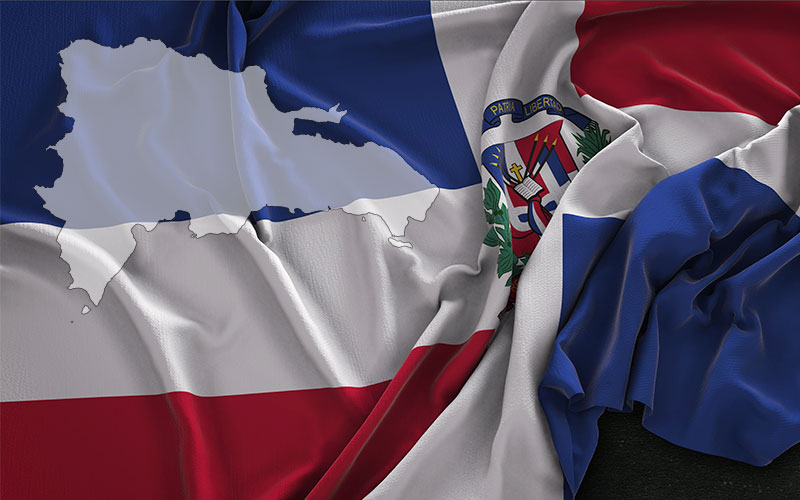On March 26, 2024, the Dominican Republic unveiled a groundbreaking regulatory framework for online casinos and sports betting through Resolution 136-2024. This strategic move, spearheaded by the Ministry of Finance, signals a significant advancement in the nation’s approach to digital gaming regulation.
This novel resolution mandates the implementation of strict measures to oversee the burgeoning sector. Entrusted with this critical responsibility is the Directorate of Casinos and Gaming, an entity poised to ensure compliance and integrity within the online betting landscape.
Key Components of Resolution 136-2024:
| Aspect | Description |
|---|---|
| Issuing Authority | Ministry of Finance |
| Regulating Body | Directorate of Casinos and Gaming |
| Objective | To introduce a regulated framework for online gambling |
| Effective Date | March 26, 2024 |
The adoption of Resolution 136-2024 positions the Dominican Republic as a pioneer in the Caribbean region, demonstrating a commitment to safeguarding consumers while fostering a responsible and transparent online gaming environment. This strategic approach not only aims to enhance regulatory measures but also to stimulate economic growth through the legal online gambling sector.
Background of Online Gambling in the Dominican Republic
In 2006, the Dominican Republic embarked on a journey to regulate online gambling, marking a significant milestone in its legal landscape. The initiative was aimed at creating a structured environment for digital betting platforms, ensuring compliance and legal operation within the country’s boundaries. Amaya, a pioneer in the online gambling industry, was granted the first official license in 2011, setting a precedent for future operations.
Challenges in the Regulatory Framework
Despite the early initiative to regulate online gambling, the Dominican Republic faced challenges in expanding its licensing beyond Amaya. The regulatory framework, although well-intentioned, was not fully utilized, limiting the growth and diversification of the online gambling sector within the nation. This singular licensing approach raised questions about the effectiveness and practical application of the existing regulations.
Implications for the Future
The Dominican Republic’s experience underscores the importance of a dynamic and inclusive regulatory framework for online gambling. As the digital landscape continues to evolve, adapting and expanding the licensing process is crucial for fostering a competitive and legally compliant online gambling industry. This approach not only enhances economic development but also ensures consumer protection and responsible gambling practices.
Historical Licensing Overview:
| Year | Event |
|---|---|
| 2006 | Introduction of online gambling regulations |
| 2011 | Amaya receives the first online gambling license |
| 2023 | Call for a more inclusive and updated regulatory framework |
Details of Resolution 136-2024
In a comprehensive legal framework stretching over 36 pages, the recently enacted regulation detailed in seven chapters and comprising 36 articles has set a new precedent in the gambling industry. This legislative document introduces meticulously curated licenses, extending a validity of five years, while imposing a restriction against their transfer within the initial three-year period. This initiative reflects a deliberate effort to enforce stability and accountability amongst license holders.
License Costs and Compliance Requirements
Aligning with its commitment to responsible gambling, the resolution delineates a structured cost scheme for various types of licenses. It further mandates the integration of responsible gambling programs, underscoring the importance of ethical practices within the industry. Such programs aim to promote awareness and provide necessary support, ensuring a safer gambling environment for all participants.
Breakdown of Licensing Fees
| License Type | Fee |
|---|---|
| Operator License | $10,000 |
| Software Provider License | $7,000 |
| Affiliate License | $2,000 |
This structured approach not only facilitates operational clarity for existing and prospective stakeholders but also reinforces the regulatory body’s resolve to foster a healthy gambling ecosystem. Stakeholders are thus encouraged to familiarize themselves with the comprehensive list of requirements and leverage the support mechanisms in place for achieving compliance.
Requirements for Operators
Under recent regulatory updates in the Dominican Republic, foreign business operators are now mandated to adhere to stringent compliance measures to operate within the country. This decisive step by the Dominican government aims to regulate the influx of foreign businesses and ensure ethical and financial transparency.
To commence operations, foreign entities are required to undergo a comprehensive registration process with the nation’s Commercial Register. This involves the crucial step of submitting criminal record certificates for verification purposes, which serves as a testament to the integrity of the business owners.
Moreover, these companies must demonstrate the legitimate origin of their capital, reinforcing the government’s stance against money laundering and financial improprieties. Additionally, securing a performance bond emerges as a prerequisite, offering a safeguard against any failure to meet contractual obligations.
Key Compliance Requisites for Foreign Operators in the Dominican Republic:
- Registration with the Dominican Commercial Register
- Submission of criminal record certificates
- Proof of legitimate funding
- Procurement of a performance bond
- Adherence to domain and hosting regulations
This enforcement of rigorous regulations signifies the Dominican Republic’s commitment to fostering a secure and transparent business environment, conducive to both domestic and international investors.







